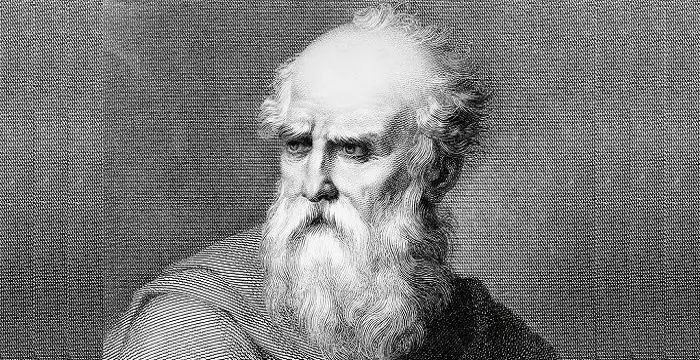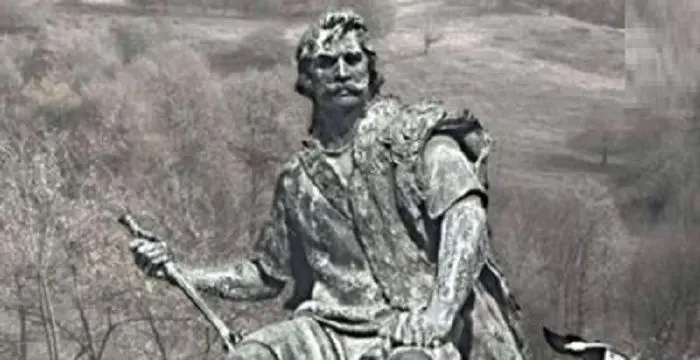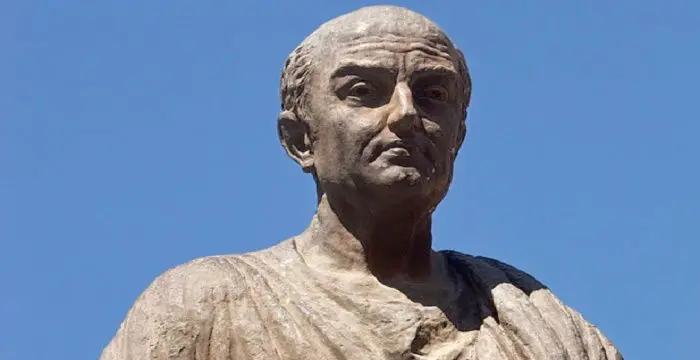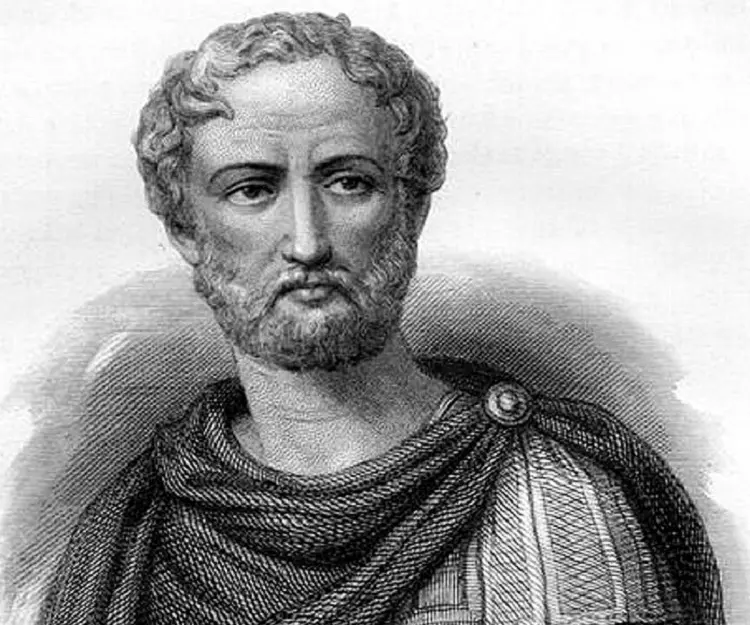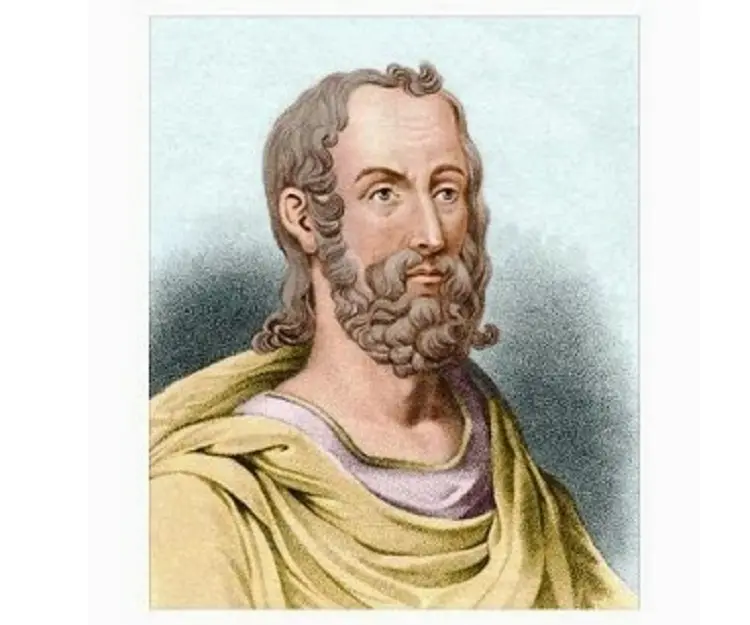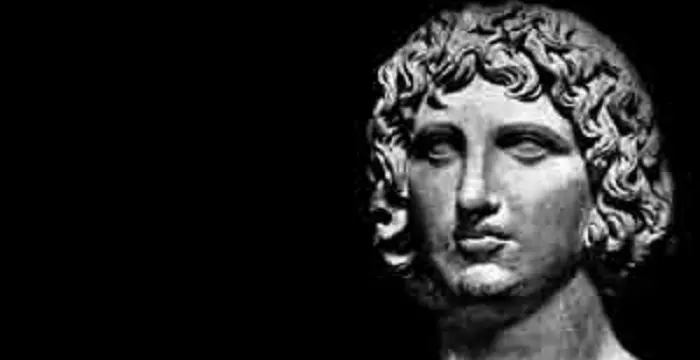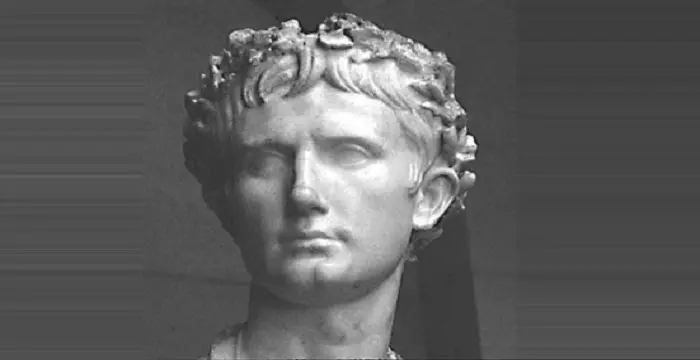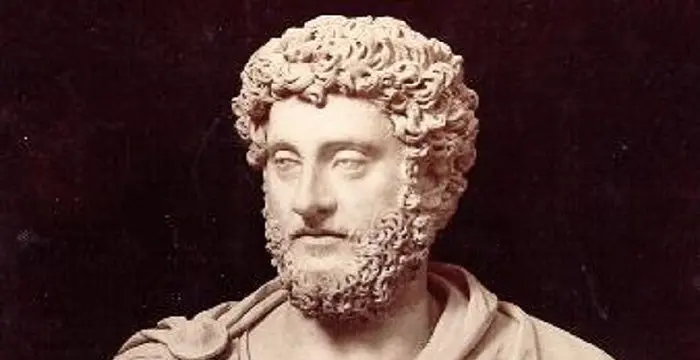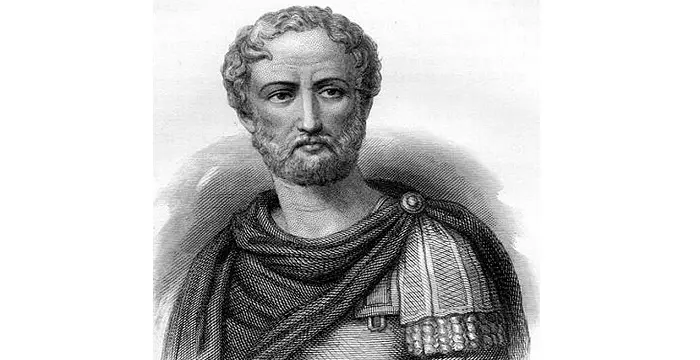
Pliny the Elder - Ancient Roman Men, Birthday and Childhood
Pliny the Elder's Personal Details
Pliny the Elder was a Roman Philosopher who lived during the 1st century
| Information | Detail |
|---|---|
| Birthday | 23 |
| Died on | January 1, 1979 |
| Nationality | Ancient Roman |
| Famous | Intellectuals & Academics, Philosophers, Ancient Roman Men |
| Known as | Gaius Plinius Secundus |
| Gender | Male |
| Father | Gaius Plinius Celer |
| Mother | Marcella |
| Famous as | Philosopher |
| Died at Age | 56 |
// Famous Ancient Roman Men
Vitruvius
Vitruvius was a Roman architect, author, and military engineer during the 1st century BC. Check out this biography to know about his childhood, family life, achievements and fun facts about his life.
Flavius Odoacer
Flavius Odoacer was a soldier who went on to become the King of Italy. This biography profiles his childhood, family, life history, and timeline.
Lucius Annaeus Seneca
Lucius Annaeus Seneca, commonly known as Seneca, was a Roman philosopher and statesman. This biography profiles his childhood, life, career, works, achievements & timeline.
Pliny the Elder's photo
Who is Pliny the Elder?
Pliny the Elder was a Roman natural philosopher who lived during the 1st century. A multi-faceted personality, he was also an author, naturalist, and a naval and army commander of the Early Roman Empire. He is best known for his work 'Pliny's Natural History' which was in Latin and explored the natural world. Until the middle ages, the book was considered a major authority on scientific matters. Pliny initially began his career as a junior officer in the army. Slowly his interest and knowledge in Roman literature gained him the attention of several scholars with whom he formed friendships. Soon he rose to the rank of a commander. He also took part in several significant military conquests. His first book was 'De jaculatione equestri' which dealt with the use of missiles on horseback. His second work was a biography of his old commander Pomponius Secundus. His most significant work was the encyclopedia 'Naturalis Historia' which comprised 37 books. The encyclopedia is one of the largest single works that has survived from the Roman Empire to this day. It covers numerous fields such as botany, zoology, astronomy, geology, and mineralogy. Pliny the Elder died an untimely death while he was attempting to rescue his friends from the eruption of Mount Vesuvius, which was one of the most catastrophic volcanic eruptions in the history of Europe.
// Famous Philosophers
Martin Buber
One of the greatest philosophers to have ever walked on earth, Martin Buber contributions to philosophy is a long-standing one. Explore all about his profile, childhood, life and timeline here.
Lao Tzu (Laozi)
Lao Tzu was a legendary Chinese philosopher who wrote the important “Daodejing”. This biography profiles his childhood, life, career, achievements and timeline.
Alan Watts
Alan Watts was a famous British philosopher known for his Zen teachings and interpretations of Eastern philosophy. Read more about this great philosopher in the following article.
Childhood & Early Life
Though the exact date of his birth is unknown, Pliny's year of birth is estimated to be AD 23 or AD 24. His father's name was Gaius Plinius Celer, who worked as an equestrian while his mother's name was Marcella. His birthplace was the town of Novum Comum in the Roman Empire’s province of Transpadane Gaul. His birth name was Gaius Plinius Secundus.
His family was wealthy and belonged to the equestrian class, which was the empire’s municipal governing class. Its members were expected to perform military service as well. Pliny also had a sister named Plinia. She was the mother of Pliny the Younger, who described Pliny the Elder's work and study regimen in detail through his letters.
At a young age, Pliny was taken by his father to Rome where he studied lawmaking. Caligula, who was Rome's emperor at the time, was meanwhile imposing a reign of terror on people whom he suspected to be dissenters.
Career
When he was in his early twenties, Pliny entered the army as a junior officer. It was a custom for youths of equestrian rank. Soon, his interest and knowledge in Roman literature gained him the attention of several scholars, with whom he became good friends. Within a short while he was able to enter the upper echelons of the state as well.
He began as a praefectus cohortis ‘commander of a cohort’, and served under Gnaeus Domitius Corbulo. Few years later, he took part in the Roman conquest of the Chauci, as well as the construction of a canal between two rivers named Maas and Rhine.
He was transferred to the command of Germania Superior after some time, where he served under Publius Secundus. Later, he was transferred back to Germania Inferior, and also promoted to proefectus alae or ‘commander of a wing’.
He wrote his first book during this period, which was named ‘De jaculatione equestri’. The book was about the use of missiles on horseback. The book has not survived; however, in his work ‘Natural History’, some of its contents can be found. He wrote another 20 volume book named ‘Wars in Germany’.
He moved to Rome when he was around 36. During this time, the emperor was the infamous Nero, whom Pliny had a huge disdain for. He worked as a lawyer during time in Rome. Having lost all his supporters and friends, Nero committed suicide in AD 68, which also put an end to his reign of terror.
After around a year, Vespasian, who was a good friend of Pliny, became the emperor. Like Pliny, he belonged to the equestrian class as well, and had risen through the ranks of the equestrian class. He wanted to re-establish peace in the empire, as well as stabilize the economy. Pliny had a good relation with Vespasian throughout his rule, and used to advice both him and his son during his stay in Rome.
Pliny avoided writing much during Nero’s reign in order to avoid drawing attention towards himself. However, during Vespasian’s rule, he was sure that the terror was over and wouldn’t resume, and he began working again. Sometime later, Vespasian did suppress the philosophers of Rome, but Pliny was not among them.
Pliny began working on ‘Natural History’ in AD 77. The book, which was the most important work of his life, contained over a million words in 37 volumes, and remains one of the most substantial ancient works that have survived to this day.
Pliny�
’Naturalis Historia’ or ‘Pliny’s Natural History’ was Pliny’s last work, as well the most important work of his life. The encyclopedia, who is one of the largest single works to have survived from the Roman Empire to this day, covers numerous subjects such as astronomy, mathematics, geography, zoology, botany, physiology, sculpture and painting. The book offers insights into nature, as well as the Roman conception of nature.
Astronomy is the first topic covered in the book. Pliny states that there are countless other bodies besides the earth. He describes the earth as a sphere suspended in the middle of space. He talks about eclipses and comets as well. He also writes about God and states that such a being would not care about state of human affairs.
He discusses Zoology from Books VIII to XI. The elephant and the hippopotamus are described in detail. He also discusses bees, which he admired for their industry, organization as well as their honey. Most of the data was derived from Aristotle.
Botany is discussed from Books XII to XVIII. He explains about the various types of trees, and the properties of their wood. He talks of spices such as pepper and ginger. He also talks of the medicinal value of sugar.
A significant portion of the book discusses matters related to medicine. He writes about plants that can provide useful drugs. He also addresses magic in Book XXX, where he also attacks astrology.
In Book XVIII, he talks about methods used to cultivate crops. He discusses all known cultivated crops and vegetables, along with herbs and remedies that can be derived from them.
In the last two books, he talks about several kinds of minerals and gemstones. He criticizes the obsessions with luxury products like engraved gems and hardstone carvings. He also writes about the shape of the diamond, and how the hardness of diamond dust can help gem engravers use it to cut and polish other gems. He also discusses about how false gems can be detected.
Pliny also describes gold mining in detail, along with methods of underground mining. One of the books also talks about base metals, their uses, and extraction.
Criticism
His works contain many scientific errors, as he was unable to make any revision due to his untimely death. However, there is also a great level of accuracy. He had correctly stated about Venus being the only heavenly body other than the sun and the moon to cast a visible shadow, and about the how the length of the day varies in different parts of the world.
The first criticism of his work was published in the 15th century. Slowly, Pliny’s influence started diminishing, as more and more scholars started questioning as well as rejecting his claims. By the end of the 17th century, ‘Natural History’ had been rejected by all leading scientists, and was no more an authority on science. However, it is still regarded as one of the greatest and most important literary works that helps us understand Rome of the 1st century.
Death & Legacy
Shortly before the death of Emperor Vespasian, Pliny was appointed as a fleet commander in the Roman Navy. During the eruption of Mount Vesuvius, he was stationed at Misenum.
After he received a message from his friend Rectina to rescue her and Pomponianus, he started sailing on a rescue mission during the course of which he died. Though the exact cause of his death is still unknown, some sources claim he ordered a slave to kill him in order to avoid dying from the heat of the volcano, while other sources claim that he died of a heart attack. As the sailors around him were not killed, it is very unlikely that his death was due to a direct impact of the volcanic eruption.
He was around 55-56 at the time of his death. He never married and had no children. His wealth was left to his nephew, Pliny the Younger. It is mostly through his nephew’s works that a lot about Pliny the Elder’s life is known today.
// Famous Intellectuals & Academics
Bertil Gotthard Ohlin
Bertil Gotthard Ohlin was a famous Swedish economist. This biography profiles his childhood, family life & achievements.
Emily Greene Balch
Emily Greene Balch was an American economist, sociologist and pacifist who won the 1946 Nobel Peace Prize. This biography of Emily Greene Balch provides detailed information about her childhood, life, achievements, works & timeline.
Martin Buber
One of the greatest philosophers to have ever walked on earth, Martin Buber contributions to philosophy is a long-standing one. Explore all about his profile, childhood, life and timeline here.
Pliny the Elder biography timelines
- // 23Though the exact date of his birth is unknown, Pliny's year of birth is estimated to be AD 23 or AD 24. His father's name was Gaius Plinius Celer, who worked as an equestrian while his mother's name was Marcella. His birthplace was the town of Novum Comum in the Roman Empire’s province of Transpadane Gaul. His birth name was Gaius Plinius Secundus.
- // 68He moved to Rome when he was around 36. During this time, the emperor was the infamous Nero, whom Pliny had a huge disdain for. He worked as a lawyer during time in Rome. Having lost all his supporters and friends, Nero committed suicide in AD 68, which also put an end to his reign of terror.
- // 77Pliny began working on ‘Natural History’ in AD 77. The book, which was the most important work of his life, contained over a million words in 37 volumes, and remains one of the most substantial ancient works that have survived to this day.
// Famous Ancient Roman peoples
Virgil
Virgil was a well-known ancient Roman poet of the Augustan period. Check out this biography to know about his childhood, family life, achievements and other facts related to his life.
Vitruvius
Vitruvius was a Roman architect, author, and military engineer during the 1st century BC. Check out this biography to know about his childhood, family life, achievements and fun facts about his life.
Horace
Horace was an ancient Roman poet who was one of the leading poets of Augustan Age. Read more about the life and the works of this poet in the following article.
Flavius Odoacer
Flavius Odoacer was a soldier who went on to become the King of Italy. This biography profiles his childhood, family, life history, and timeline.
Lucius Annaeus Seneca
Lucius Annaeus Seneca, commonly known as Seneca, was a Roman philosopher and statesman. This biography profiles his childhood, life, career, works, achievements & timeline.
Commodus
Commodus (Lucius Aurelius Commodus) was a Roman emperor during the early years of the first millennium. This biography provides detailed information about his childhood, family, rule, life history, achievements, death etc.
Pliny the Elder's FAQ
When was Pliny the Elder died?
Pliny the Elder was died at 1979-01-01
Which age was Pliny the Elder died?
Pliny the Elder was died at age 56
What is Pliny the Elder nationalities?
Pliny the Elder's nationalities is Ancient Roman
Who is Pliny the Elder's father?
Pliny the Elder's father is Gaius Plinius Celer
Who is Pliny the Elder's mother?
Pliny the Elder's mother is Marcella
How famous is Pliny the Elder?
Pliny the Elder is famouse as Philosopher
